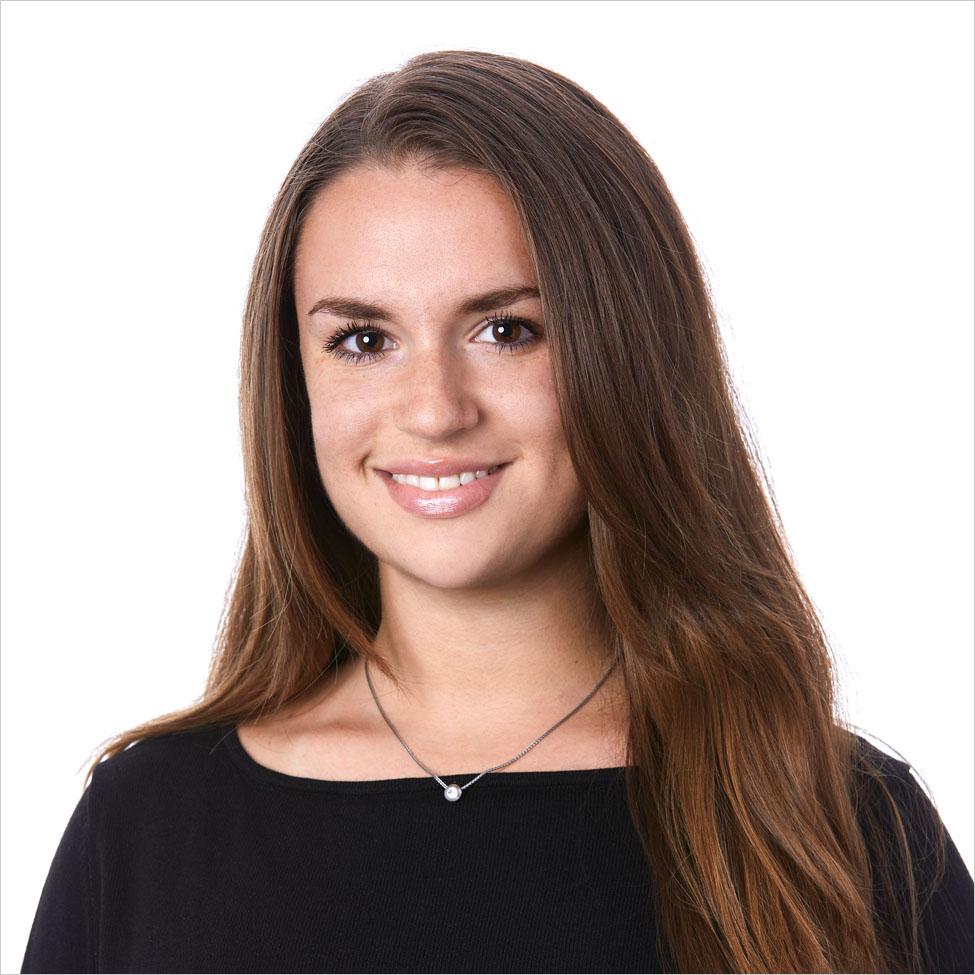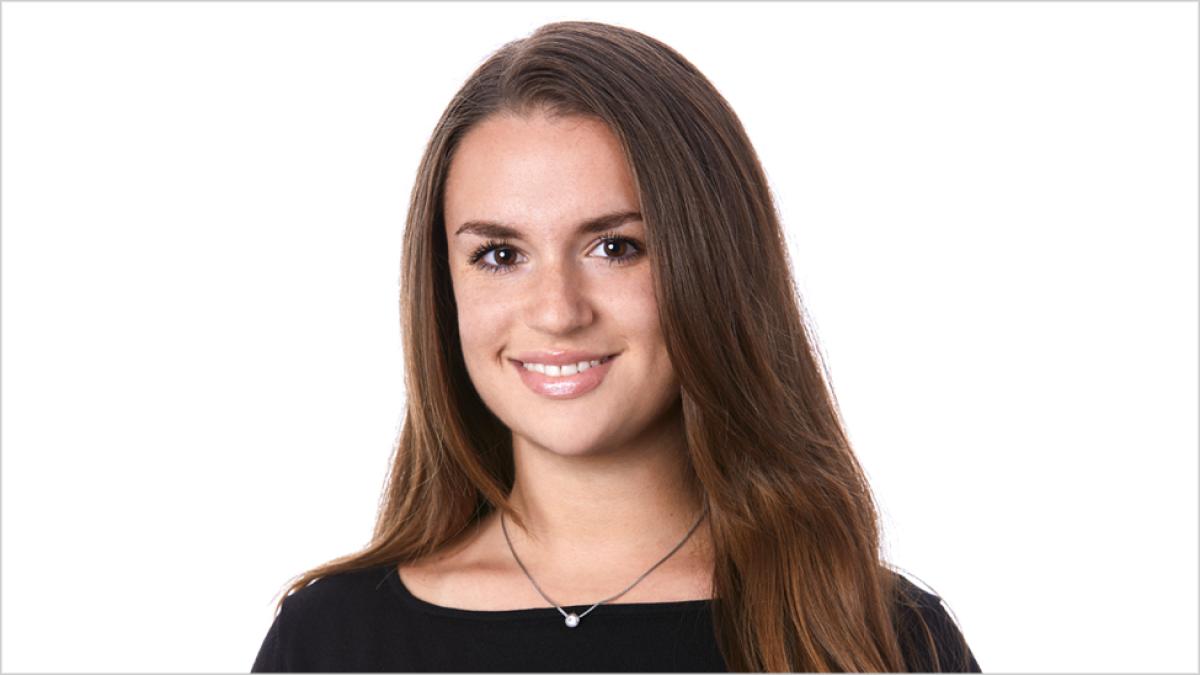
Balancing Business, Leadership, and Legal Studies
From spearheading the Pre-Law Society to navigating the fast-paced world of finance, Alina Ongeyberg ’25 is making the most of her Lubin experience. With a passion for leadership and a drive for success, she’s building a foundation that blends business, law, and community at Pace University.

Alina Ongeyberg
Class of 2025
Currently Studying: BBA in Finance, Pre-Law Minor
Member Of: Pre-Law Society, Sigma Delta Tau Sorority
Pronouns: she/her/hers

Why did you choose Pace University and the Lubin School of Business?
Pace offered me something not all schools did: the opportunity to be in a tight-knit community. Through the Lubin School of Business, I've been able to learn from professors with real-world experience and study alongside peers who are driven and motivated to see what this busy city holds for them.
How have clubs on campus helped enrich your student experience?
Clubs on campus have significantly enriched my student experience by providing leadership opportunities and a sense of community. I joined the sorority Sigma Delta Tau, which not only connected me with women who share similar values, but also gave me the chance to take on leadership roles. Over the past three years, I've served as vice president of finance and vice president of risk reduction, gaining hands-on experience in budgeting, financial management, and crisis planning. Being involved in these roles allowed me to grow not only within the organization, but also personally and professionally.
How has the Pforzheimer Honors College benefited you?
As a member of the Pforzheimer Honors College, I've benefited from priority registration, specialized advisors, and the opportunity to take classes with other Honors students. It provides a smaller community within the larger Pace environment.
What have you learned in your current role as president of the Pre-Law Society?
As president of the Pre-Law Society, I've learned the importance of leadership and effective communication. Starting a new organization requires building everything from scratch—creating the logo, setting up social media platforms, conducting outreach, and overseeing the budget. This experience has taught me how to build a presence, engage with members, and communicate our mission to the campus community. Our first semester on campus was fall 2024, and we have already grown immensely. The executive board has been a huge source of inspiration, and the creation of the organization would not have been possible without their support and commitment to joining me on this journey.
How has your experience with Lubin shaped the way you approach running the Pre-Law Society?
My experience with Lubin has greatly shaped the way I run the Pre-Law Society. Classes such as Contemporary Business Practice and Business Strategy have taught me key concepts such as budgeting, event planning, and strategic thinking, which I've applied to real-world scenarios within the organization. Additionally, Lubin's focus on practical experience inspired us to create events that provide valuable insights into the legal profession. In our first semester on campus, we hosted a Pace Haub Law alumnus as a guest speaker and invited Pace Haub Law students to speak on a panel with our members.
Tell me about your time with the Wall Street Acceleration Program. Why did you choose to join? What were the most valuable takeaways for you?
I chose to join the Wall Street Acceleration Program because it offered a unique opportunity to gain industry insights and deepen my understanding of the finance field. The program provided exposure to seasoned professionals across areas such as venture capital, hedge funds, and investment banking. The most valuable takeaways for me were the expert advice and career guidance I received. Conversations with these professionals taught me not only about their day-to-day work, but also the "why" and "how" behind their careers.
My favorite opportunity at Pace has been founding and leading the Pre-Law Society. It has been incredibly rewarding to create a space where students can explore legal careers.
What has been your favorite opportunity at Pace?
My favorite opportunity at Pace has been founding and leading the Pre-Law Society. It has been incredibly rewarding to create a space where students can explore legal careers.
Do you have any advice for other Lubin students?
My advice to other Lubin students is to take full advantage of the resources available to you. Network with professors, peers, and alumni—you never know what opportunities may come up. Don't be afraid to step outside your comfort zone, whether by joining student organizations, participating in programs like Wall Street Acceleration, or taking on leadership roles. These experiences will shape your skills in one way or another.
What does #LubinLife mean to you?
#LubinLife means embracing both the academics and real-world experience that Lubin offers. You are in a community of driven, ambitious individuals who support each other's growth. Whether in the classroom or through extracurricular activities, #LubinLife represents experiences that extend far beyond academics.
Connect with Alina: